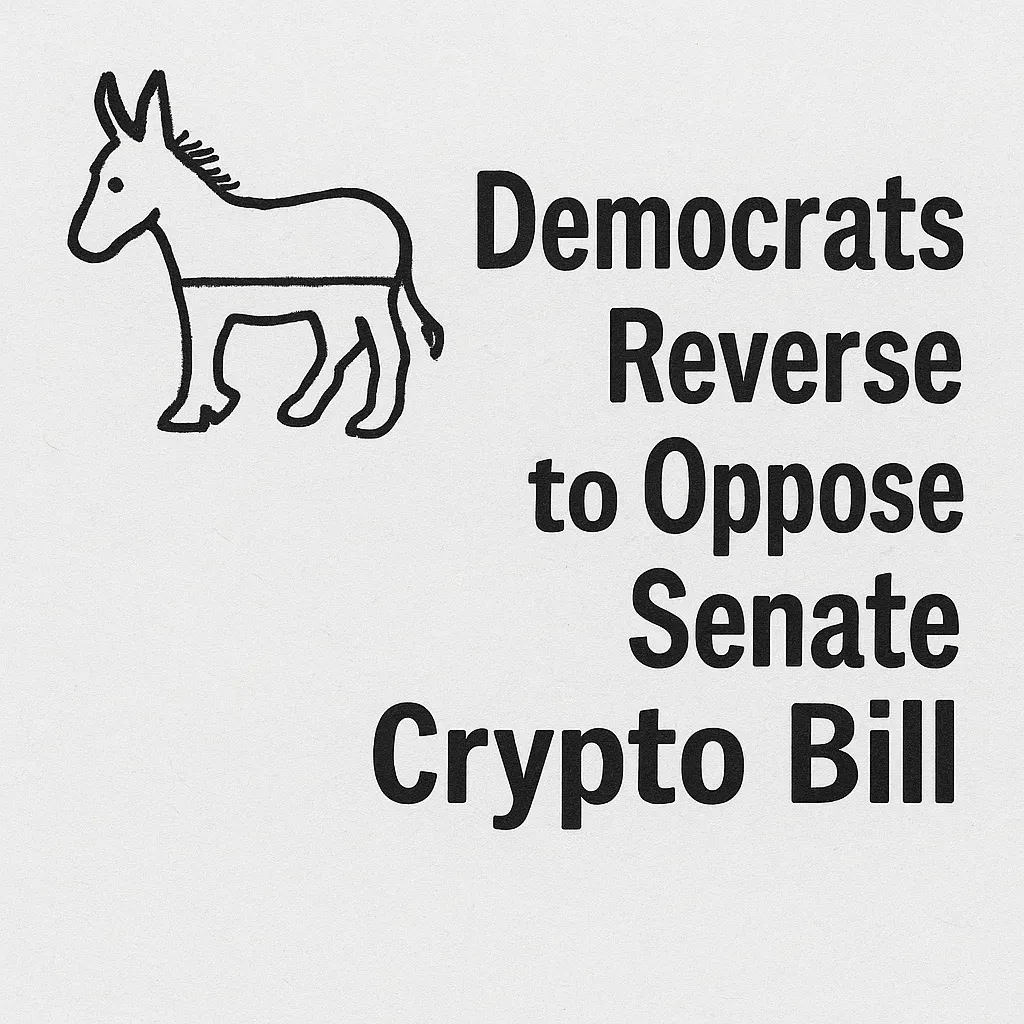
Senate Democrats Pull Support for GOP Crypto Bill
A group of high-profile pro-crypto Senate Democrats have reversed their stance and now say they will oppose the Republican-led stablecoin legislation, despite having previously supported key provisions of the bill.
The sudden shift has sent shockwaves through Capitol Hill, creating uncertainty around what was expected to be the first bipartisan crypto regulatory breakthrough in years.
Why Democrats Are Now Backtracking
The legislation, spearheaded by Senator Cynthia Lummis (R-WY) and Senator Pat Toomey (R-PA), was designed to provide a legal framework for stablecoins digital assets pegged to traditional currencies like the US dollar.
Initially, several moderate and progressive Democrats, including Senators Kirsten Gillibrand (D-NY) and Ron Wyden (D-OR), expressed tentative support, citing the need for clarity and consumer protections in the rapidly growing digital dollar space.
However, those same senators withdrew their support for the bill on Saturday, citing concerns about last-minute additions that they believe could weaken federal oversight and allow state-level regulatory arbitrage.
“We cannot support legislation that risks creating a race to the bottom in financial regulation,” the statement read. “Stablecoin markets must be subject to robust federal oversight, not a patchwork of state loopholes.”
A Blow to Bipartisan Momentum
The withdrawal of Democratic support is considered a major setback to crypto advocates who had hoped for a rare bipartisan victory in Washington. The bill was scheduled for a committee vote next week, but that now appears likely to be delayed or scrapped altogether.
Industry voices have expressed frustration. “This is a missed opportunity,” said Angela Garvey, policy director at the Crypto Compliance Council. “The longer the US delays, the more we risk falling behind jurisdictions like the EU and UK, which are already rolling out digital asset legislation.”
What’s in the Bill?
The bill aimed to:
- Define stablecoins and outline how they could be issued.
- Require issuers to hold 100% reserve assets and undergo regular audits.
- Allow state-chartered banks and licensed firms to issue stablecoins under national guidelines.
- Set consumer protection and anti-fraud standards.
The provision is most in dispute? Democrats now argue that the language allowing state regulators to oversee certain types of stablecoin issuers without direct federal supervision is ripe for exploitation.
Crypto Becomes a Midterm Fault Line
The timing is politically delicate. With the 2026 midterms looming, crypto policy is rapidly becoming a wedge issue, with Republicans casting themselves as champions of innovation and Democrats struggling to define a unified stance.
While many Democrats back blockchain innovation, they remain wary of industry influence, particularly after high-profile collapses like FTX and Terra Luna.
Stay on top of any cryptocurrency news by following us on X @ouinex